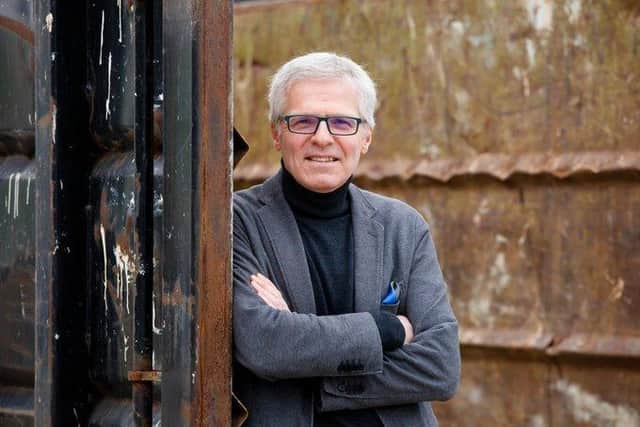We’re wasting great opportunities to treat waste as a resource - Michael Groves
Across the UK, between 40-50% of household waste is recycled, but other than packaging waste, there is less certainty over the outcomes for commercial and industrial waste (generated by businesses), even though this accounts for 15% of the total tonnage.
Businesses will contract one of the many private waste and recycling companies to collect and safely manage and process their material. This ranges from inert recyclables such as card and plastic, through more specialised materials, some of which may be hazardous, such as lubricants or acids. Manufacturers, in particular, generate a range of waste and by-products that are handled by different contractors who cover different parts of the country or are licensed to handle specific materials.
Advertisement
Hide AdAdvertisement
Hide AdIncreasingly manufacturers and other companies are recognising the need to view waste as a resource – rather than just a cost of doing business. With rising input costs, the idea of resource efficiency and waste reduction has been brought into sharp relief for companies. Note the recent report from the Institution of Mechanical Engineers that calls for a complete rethink of waste in their new report ‘Waste as a Resource: A sustainable Way Forward’. This highlights the need to focus on waste reduction at source, climate mitigation and to broaden efforts across all materials streams, rather than fixating on household waste.


To this end, in 2021, Topolytics and CeeD (Centre for Engineering Education and Development) set out to explore and understand the waste challenge and opportunity across the Scottish manufacturing sector. Through surveys and working with data from manufacturers, we assessed their knowledge of waste and the means by which they control and manage this material across their operations.
The work highlighted: Poor data and visibility over waste material once it enters the ‘downstream’ supply chain. More than 90% of companies placed a high priority on knowing more about what happens to their waste – allied to 50% of companies declaring that they do not know what happens to their waste when it leaves their sites. 75% of companies stated the importance of reporting to customers and other stakeholders about waste and resource efficiency. More than 80% of companies stated a desire to shift to circular economy models, including closed loop approaches to products and packaging, design for recovery and recyclability and different business models.
In 2022, we are taking this work forward with Scottish manufacturers and those with a footprint in Scotland. This work is supported by Innovate UK, under its scheme Made Smarter Innovation: Sustainable Smart Factory. Our work is looking to generate visibility of waste from raw materials inputs, through a production process into the external waste system. By doing so, we can generate insights that can drive operational and resource efficiencies, validate against compliance and corporate KPIs, measure carbon impact and support ESG and sustainability reporting.
We know through experience that great benefits are to be gained for manufacturers and other organisations, through taking a fresh look at waste production at source and the data from their supply chain. In this way, we can achieve much higher levels of efficiency (thereby saving money), reduce the impact of waste and turn this material into a resource.
You can contact Tony Ianniello at CeeD to take part in this hugely important, funded study. www.ceed-scotland.com/wastemap
Michael Groves, CEO, Topolytics
Comments
Want to join the conversation? Please or to comment on this article.